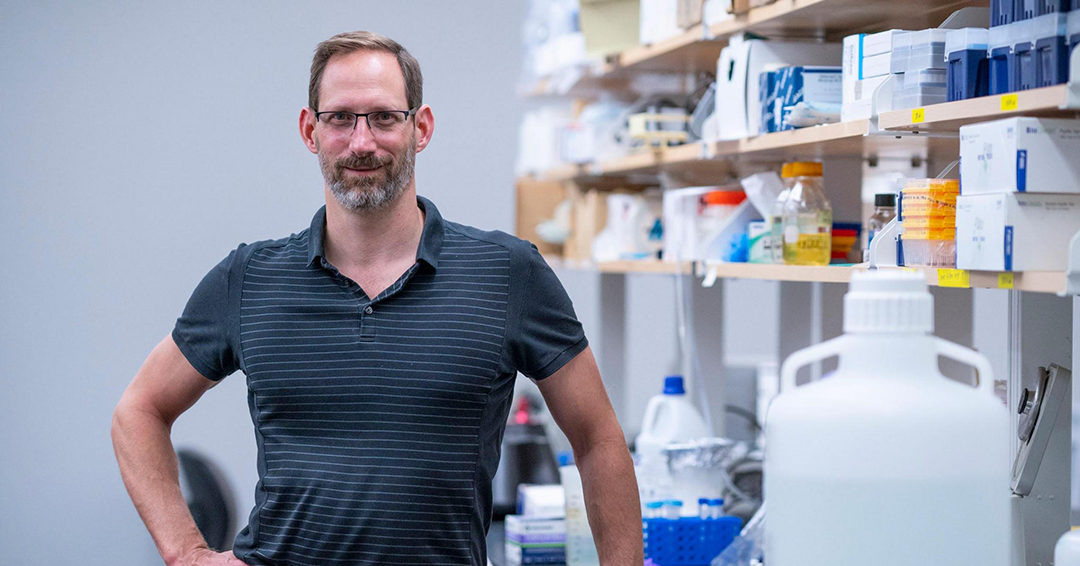BRIDGEPORT, Pa. — The women’s collegiate club water polo coach/Associate Professor, Microbiology, Immunology, and Cancer Biology at the University of Virginia, Dr. Dan Gioeli continues his efforts to fight cancer as he is co-principal investigator on research to utilize smart phone and watches in the fight against the disease.
Among the leading researchers in the fight against prostate cancer for collaborating with Manchester UK based APIS Assay Technologies Ltd to discover that Hormone-Upregulated lncRNA within the lymphocyte-specific protein tyrosine kinase (HULLK) is detectable in non-invasive prostate cancer patient samples, the three-time (2019, 2022, 2023) Atlantic Division Coach of the Year is part of another research project to use smartwatches/phone to provide better, more personalized cancer care – and possibly help slow the growth of some tumors.
Gioeli and a team of UVA Health researchers has demonstrated the potential of wearable and mobile devices such as smartwatches and smartphones to help doctors tailor treatments to the needs of individual patients.
The scientists found that they could use wearable devices to predict patients’ levels of cortisol, the insomnia and stress hormone. Results from their laboratory experiments suggest that patients with pancreatic cancer who have high cortisol levels from disrupted sleep will experience faster growth of their tumors. Doctors could leverage information, including sleep data, from patients’ mobile devices to help at-risk patients keep their cortisol levels down and, in turn, slow their tumor growth.
Although still in the early stages, UVA scientists say their efforts demonstrate the tremendous potential of “mobile sensing” for improving and individualizing cancer care. They have charted an ambitious plan to bring together experts from psychology to engineering and data science to oncology to capitalize on the untapped possibilities of devices that most of us already carry in our pockets or wear on our wrists.
“This could one day lead to individualized cancer treatment that is tailored to the behavioral health profile of the individual patient,” said researcher Philip I. Chow, of the University of Virginia School of Medicine’s Department of Psychiatry and Neurobehavioral Sciences and UVA’s Center for Behavioral Health and Technology.
“We know that patients are diverse in terms of their mental and physical health,” he said. “We’re trying to advance a more precise model of care that takes into account a patient’s health profile when making decisions about their cancer treatment in order to improve outcomes. It’s a bit outside-the-box thinking, and to our knowledge nobody else is doing it.”
In a new scientific paper, Chow and his collaborators, including Gioeli, argue there is “strong but unrealized potential to harness mobile sensing data to improve our understanding of [patients’] cellular and biologically based diseases.”
That is possible because of recent breakthroughs in the ability to model cancer tumors, researchers say.
Data about patients’ hormones generated by wearable and mobile devices could be fed into systems to give doctors unprecedented insights into an individual patient’s disease and cancer progression, the researchers say. By using a system that models how tumor cells grow – called tumor microenvironment system, or TMES – the UVA team revealed that pancreatic cancer cells grew much faster in people with high cortisol from disrupted sleep.
But there are many other potential applications of the technology, from understanding how patients’ behaviors affect their cancers to benefiting fundamental cancer research, the researchers say.
“By bringing together different scientific disciplines, we can more effectively model cancer in the laboratory and then possibly learn how a patient’s cancer will respond to specific therapies and how helping manage a patient’s sleep or stress levels can impact that therapy,” said Gioeli. “It is incredibly exciting to be working on a team of scientists with such diverse expertise to do something unique and potentially impactful for patients.”
The UVA researchers envision that patients might wear a smartwatch connected to an app on their phones to securely transmit encrypted data to their health care providers. Artificial intelligence would estimate their hormone levels from their behavioral patterns, and those levels would be displayed in their electronic health records so that clinicians could leverage the information to make the best care decisions.
To read the full story, CLICK HERE.




